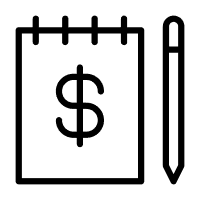Telephone Consumer Protection Act Lawyer
Protecting Clients from Unwanted Phone Calls
If you’re tired of getting text messages and phone calls from telemarketers, debt collectors, and other solicitors, it’s time to contact a Chicago TCPA lawyer for help. After all, consumers like you are supposed to be protected from unwanted communications via federal laws like the Telephone Consumer Protection Act (TCPA). If it turns out the businesses trying to contact you have violated this federal law, skilled lawyers can hold them liable.
The team at Atlas Law Center is knowledgeable about statutes like TCPA and can fight for your rights in federal court if you’re interested in taking legal action. Call our Chicago law office for a free initial consultation if you want to learn how the TCPA protects you and what kind of outcome to expect in your case.
What Is the Telephone Consumer Protection Act?
The Telephone Consumer Protection Act (TCPA) is a federal law that was enacted in 1991 with the goal of regulating telemarketers who disturb consumers with telephone solicitations and robocalls or automated messages. Enforced by the Federal Communications Commission, the TCPA is meant to protect the rights of consumers from annoying telemarketing practices unless the consumer has prior express consent.
It’s important to note that this act applies to most businesses, including telemarketers, debt collectors, and other solicitors that initiate telephone calls and text messages to reach consumers on cell phones and residential phone lines. Such businesses must get consumer consent and cannot contact anyone on the National Do Not Call Registry. They must also follow specific rules regarding how they contact consumers.
Note that there are some exceptions, such as tax-exempt non-profits. Such charities are allowed to contact consumers to ask for donations, thank donors, tell supporters about upcoming fundraising events, or spread awareness about an issue. However, they must follow certain rules, such as identifying the name of the organization at the beginning of the call, giving their phone number, and getting written consent for robocalls. Additionally, tax-exempt non-profits cannot call any numbers on the National Do Not Call Registry.
If you have been subjected to the nuisance of telemarketers and automatic messages at unlawful times or are on the National Do Not Call Registry, we can help determine if the businesses contacting you have violated the TCPA law. If so, we can help you seek damages from the at-fault parties. Call us for a free consultation with helpful attorneys.
How Does the TCPA Protect You?
The TCPA law features several rules that businesses of all kinds must follow when it comes to contacting consumers. Some of the rules include the following:
- Businesses must avoid calling anyone on the National Do Not Call Registry
- They must obtain written consent before using an automatic telephone dialing system to reach cell phones
- They must get consent before sending prerecorded calls to consumers
- They cannot call consumers before 8 am or after 9 pm local time
- They must state their name and the name of the business at the beginning of the phone call or text message
- They must provide a phone number or address so the consumer can contact them if needed
If a business violates these rules, you’re entitled to take legal action against them, which an Illinois TCPA lawyer can assist with. The compensation you can get will depend on the details of your TCPA case, but it generally ranges from $500 to $1500 for each violation.
When you talk to an attorney about your case, you can discuss whether it’s best to bring an individual lawsuit against the at-fault business or join a TCPA class action lawsuit. If there are several consumers with TCPA claims that are similar to yours, a class action lawsuit might be the simplest way to get the compensation you deserve. At Atlas Law Center, we’ve successfully handled individual claims and TCPA class actions, so we recommend you call us to discuss your legal options with trusted lawyers.
Why Should You Report TCPA Violations?
You should not have to deal with unwanted phone calls or text messaging from anyone, especially companies you’ve never had contact with. So if you’re dealing with these issues and are tired of trying to ignore the incessant calls and texts, you should contact our law office for help reporting them and seeking compensation.
After all, companies that initiate unsolicited calls and text messages are partaking in harassment, and you do not have to put up with it. Debt collectors aren’t allowed to send you text messages intending to trick you or harass you. This includes messages that deceive you into calling them back. In fact, in 2015, the Federal Trade Commission discovered and halted three debt collection schemes that were doing just that – evoking telephone calls from debtors through deceitful texts.
Today, victims of debt collector harassment are still protected by the FTC’s rules. Sometimes, illegal texts from debt collectors include some kind of “hook,” such as a fake payment confirmation or falsified message about a declined payment, along with a phone number. If you receive even one message like this from a debt collector, you’re being harassed and should speak with a lawyer.
Another fact to know is that telemarketers are not allowed to call you before 8:00 a.m. or after 9:00 p.m. They are held to a high standard of consumer protection and should be reported if they violate it, as you and your family members should not have to be woken up by unwanted calls, texts, or prerecorded messages at odd hours. Generally speaking, telemarketing (sometimes called insider sales) is any attempt to solicit potential customers via phone calls. While telemarketing is not illegal, the standard of acceptable conduct for telemarketers is strict.
So, if a telemarketer contacts you outside of the acceptable hours for calls or texts, you may have a case for harassment. If you’ve received this kind of contact and want to check if it violates the TCPA, you should speak with an attorney about your legal rights and options. Our Chicago TCPA team would be happy to review your situation and let you know if you qualify for a class action or other type of legal claim.
How Can Chicago TCPA Attorneys Uphold Your Rights?
At Atlas Law Center, our legal team has the litigation skills and resources to tackle even the most challenging TCPA compliance matters. We know what the Federal Communications Commission looks for when determining if a company is in TCPA compliance, which means you can count on us to accurately identify and report any violations so you can stop receiving unwanted calls and texts from companies and pursue compensation.
Our extensive experience and legal insight in this area of consumer law extends to significant TCPA cases, such as Destination Ventures Ltd. vs. FCC. Similarly, in 2014, Capital One made headlines when agreeing to a $75.5 million class settlement for allegedly calling customers’ cell phones without consent through an automated dialing system. We understand the complexity of TCPA class actions involving unwanted calls and texts, so you can trust us to help stop unwanted contact from all kinds of companies.
If you’re ready to stop getting unwanted calls, artificial or prerecorded voice messages, texts, faxes, and other forms of unwanted contact, contact us at 331-321-4748. Our Chicago lawyers are prepared to launch a thorough investigation in order to prove that your rights were violated under the TCPA so you can collect statutory damages at the end of your case.




